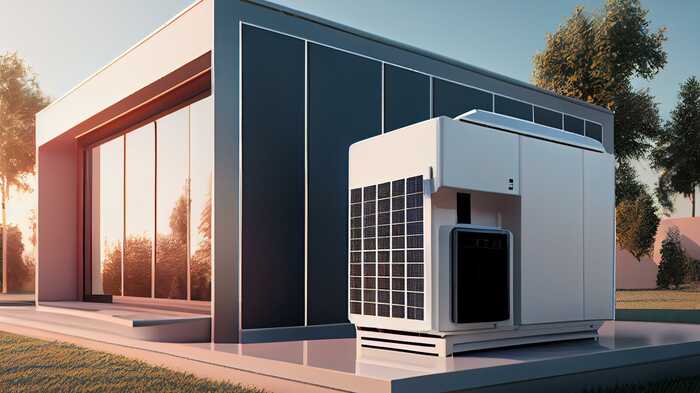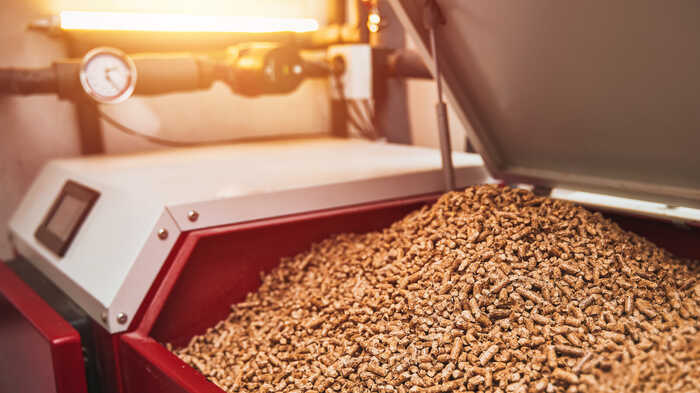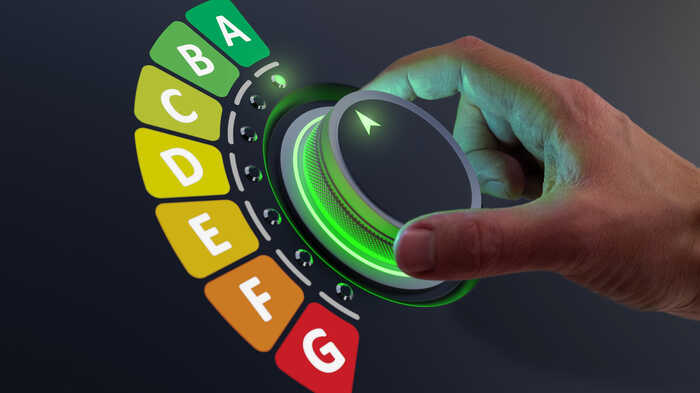4 Innovative Ways to Heat a New Build
While at the planning stage of a new build, one of the most crucial early decisions homeowners need to make is how they’re going to heat their property. Of course, navigating through the various heating system options available on the market can be a challenge, as each product has its own benefits, drawbacks, and cost factors to consider. What’s more, with the global mindset firmly centred on reducing carbon footprints in the light of the growing climate crisis, there are ecological factors to consider, too.
So, let’s take a look at some of the more innovative heating systems available and see which might be best suited to meet the individual needs of homeowners and their new build projects.

Air Source Heat Pumps
Growing in popularity as an energy efficient alternative to standard oil or gas heating systems, air source heat pumps work by extracting heat from the outdoor air, which, in turn, is transferred into your home using a refrigerant process. The air source heat pump absorbs the heat from the air, raises it to a higher temperature, then distributes it throughout the building via a network of pipes or radiators.
Advantages
Perhaps one of the key benefits of including an air source heat pump in your new build design, one that will resonate with homeowners looking to offset their rising energy bills, is their high efficiency. An air source heat pump can provide a heat energy ratio of up to 4:1, meaning for every unit of electricity used, the system can emits four units of heat. Their carbon footprint is also significantly less impactful than traditional heating systems, too. Meanwhile, such is their design, air source heat pumps are able to provide both heating and cooling all year round, making them a hugely versatile, cost-effective, and eco-friendly option for a variety of new builds.
Disadvantages
Despite the long-term economic benefits of choosing an air source heat pump, one consideration is the initial, often prohibitive cost of installation compared to traditional heating solutions. It's worth noting, however, that there are government incentives and grants available to help alleviate the cost of installing an air source heat pump. The government's Domestic Renewable Heat Incentive (RHI) scheme, for instance, provides financial support to homeowners who install renewable heating systems, including air source heat pumps.

Solar Water Heating
What better way to heat your home than by harnessing the power of the sun! Solar water heating is another brilliantly eco-friendly heating system that typically consists of solar collectors that are installed on the roof or walls of a building. These collectors absorb the heat from the sun's rays and use it to heat the water that is stored in a tank. The heated water can then be used for showers, baths, and any other hot water needs.
Advantages
The benefits of using solar water heating are many and varied. As well as significantly reducing your energy bills and carbon footprint, solar water heating systems are highly reliable and require minimal maintenance once installed. Meanwhile, solar water heating can help to increase the value of your home and are made more affordable by the various government-backed initiatives in place, such as the ECO4 scheme, to encourage property owners to invest in green technology.
Disadvantages
Typically, solar thermal heating systems aren’t built to provide the entire heat quota for a property. In most cases, the technology will heat around 50% of the hot water needs of an average home—or anywhere between 40% and 80% of ambient heating. In which case, it’s important to keep an auxiliary heating system in good working order—either a heat pump or boiler—which can provide the remaining required heat.

Biomass Boilers
By burning organic materials such as wood pellets, chips, or logs, biomass boilers generate heat which can then be used to provide warmth and hot water for your property. Another heating solution scoring high with its ecological credentials, a biomass boiler will not only help to reduce your carbon emissions, it also goes some way to support sustainable forestry practices with its use of recycled wood as a fuel source.
Advantages
While oil and electric prices continue to rise in the UK, a trend that doesn’t show any signs of slowing—in contrast, the cost of fuel needed for biomass boilers, either wood pellets, chips or logs, are much more stable. So homeowners who decide to install this carbon-neutral heat source won’t be hit with any sudden spikes in their heating bills. Biomass boilers also qualify for the RHI—which, over time, would go some way to help repay your initial, not inconsiderable investment!
Disadvantages
Despite being a brilliant green heating solution, and their stable fuel economy, biomass boilers do come with some of the limitations of more traditional options. In terms of installation, a biomass boiler is generally about as large as a gas or oil alternative and is less energy-efficient than an electric system. It’s also worth being aware that, in colder months, biomass boilers can also emit a significant degree of noise, also known as kettling.

Micro-CHP Systems
Micro-CHP (Combined Heat and Power) systems are a sophisticated, highly- sustainable method of heating a new build. By generating both electricity and heat simultaneously, Micro-CHP systems can produce energy for your home while heating it at the same time. Natural gas or renewable fuels and biofuels are used to power a generator that produces electricity; the heat produced as a by-product is captured and used for heating your home.
Advantages
One of the key advantages of Micro-CHP systems is their cost-efficiency. Not only will they help reduce your monthly utility bills, they will also allow you to save money by reducing energy losses that occur when you transfer energy from one form to another. If your new build plans feature a natural gas boiler, for instance, you will lose some of the energy you could put into the home when the outward flowing gas fumes turn into steam in the vent pipe from your boiler.
Disadvantages
A micro-CHP boiler will undoubtedly cost more than a traditional new build heating system to install, and there is no current support funding or government initiatives in place as seen with other eco-friendly solutions. And, while a micro-CHP boiler will reduce the amount of energy that your home draws from the grid, the system alone won’t provide enough electricity to cover the entirety of your home’s heating needs.
How can we help?
If you're at the beginning of your new build journey and would like to discuss the best heating option for your needs, why not get in touch with Maidenhead Planning and let us help you find the perfect solution for your property. Or, alternatively, book a free video consultation and let's build your dream house together!
Posted on May 12th 2023

